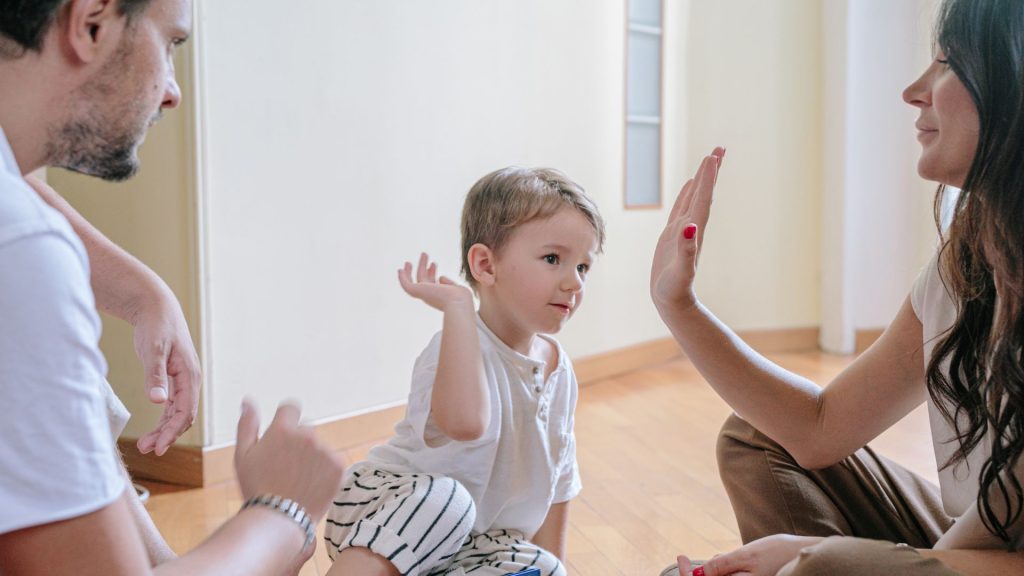Co-parenting can be a challenging task for parents who are no longer in a relationship, but it is essential for the well-being of the children involved. While co-parenting can be an effective way to raise children, it can also be a source of conflict and stress. In this article, we will explore some of the common issues that arise in co-parenting and provide tips on how to overcome them.
One of the most significant issues that parents face when co-parenting is communication. It can be challenging to communicate effectively with an ex-partner, especially if there are unresolved issues or past hurt. However, communication is crucial in co-parenting, and it is essential to find a way to communicate effectively for the sake of the children. We will provide tips on how to improve communication and avoid conflicts.
Another common issue in co-parenting is disagreements about parenting styles. Each parent may have different ideas about how to raise their children, and these differences can lead to conflicts. It is crucial to find a way to compromise and work together to create a parenting plan that works for both parents and the children.
We will provide tips on how to find a middle ground and come up with a parenting plan that works for everyone involved.
Understanding Co-Parenting

Co-parenting is the shared parenting of children by their parents or parental figures who are non-married or living apart. It’s a challenging but rewarding experience that can help children thrive despite their parents being separated. In a co-parenting situation, both parents share the responsibility of raising their children, and they work together to make decisions regarding their child’s upbringing.
However, co-parenting can be difficult, and there are many issues that can arise. One of the most common problems is communication. When parents are not living together, it can be hard to communicate effectively, and misunderstandings can easily occur. It’s important to have a plan in place for how you will communicate with your co-parent, whether that’s through email, text, or phone calls. This can help to reduce confusion and ensure that both parents are on the same page when it comes to parenting decisions.
Another issue that can arise in co-parenting situations is disagreement over parenting styles. Every parent has their own unique approach to parenting, and it can be challenging to find a common ground when it comes to raising children. It’s important to be open and honest with your co-parent about your parenting style and to listen to their perspective as well. By working together, you can find a way to compromise and create a parenting plan that works for both of you.
Finally, it’s important to remember that co-parenting is about putting your children first. It can be easy to get caught up in your own feelings and frustrations, but it’s important to remember that your children are the most important thing. By focusing on what is best for your children, you can work together with your co-parent to create a happy and healthy environment for them to grow up in.
In summary, co-parenting is a challenging but rewarding experience that can help children thrive despite their parents being separated. Effective communication, compromise, and putting your children first are key to making co-parenting work.
Common Issues in Co-Parenting
Co-parenting can be challenging, and it’s not uncommon for conflicts to arise. Here are some of the most common issues we see in co-parenting:
Communication Breakdown

Communication is key to successful co-parenting. When communication breaks down, it can lead to misunderstandings, missed appointments, and frustration. It’s important to establish clear communication channels and stick to them. This may include email, text messaging, or a co-parenting app. It’s also important to be respectful and courteous in all communications, even when emotions are running high.
Inconsistent Parenting Styles
Inconsistent parenting styles can cause confusion and stress for children. It’s important for co-parents to establish a consistent set of rules and expectations for their children. This may require compromise and negotiation, but it’s worth it in the long run. It’s also important to communicate these rules and expectations to the children so that they understand what is expected of them.
Disagreements on Child’s Upbringing

Co-parents may have different ideas about how to raise their children. This can lead to disagreements on issues such as discipline, education, and religion. It’s important for co-parents to have open and honest discussions about these issues and to come to a compromise that works for everyone. It’s also important to keep the best interests of the children in mind when making decisions about their upbringing.
In conclusion, co-parenting can be challenging, but it’s important to work through these issues for the sake of the children. Communication, consistency, and compromise are key to successful co-parenting.
Impact of Co-Parenting Issues on Children
When co-parenting issues arise, it can have a significant impact on the children involved. Here, we will discuss two major areas where children may experience negative consequences due to co-parenting issues: emotional instability and behavioral problems.
Emotional Instability

Children who are exposed to co-parenting issues may experience emotional instability. This can manifest in a number of ways, including anxiety, depression, and low self-esteem. Children may feel caught in the middle of their parents’ conflicts, leading to feelings of guilt, confusion, and sadness. They may also feel like they have to choose sides, which can be emotionally taxing and overwhelming.
In addition, children may experience a sense of loss when their parents are not able to co-parent effectively. They may feel like they have lost the stability and security that comes with having two parents who work together to provide for their needs. This can lead to feelings of abandonment and insecurity, which can have long-lasting effects on their emotional well-being.
Behavioral Problems

Co-parenting issues can also lead to behavioral problems in children. When parents are in conflict, they may not be able to provide consistent discipline, which can lead to confusion and acting out. Children may also feel like they can get away with more when their parents are not on the same page, leading to a lack of respect for authority and rules.
In addition, children may struggle with social interactions when they are dealing with co-parenting issues. They may feel embarrassed or ashamed of their family situation, leading to social isolation and difficulty forming healthy relationships. This can have negative consequences on their emotional and social development.
Overall, co-parenting issues can have a significant impact on children. It is important for parents to work together to minimize conflict and prioritize the needs of their children. By doing so, they can help their children to feel emotionally stable and develop healthy behaviors and relationships.

